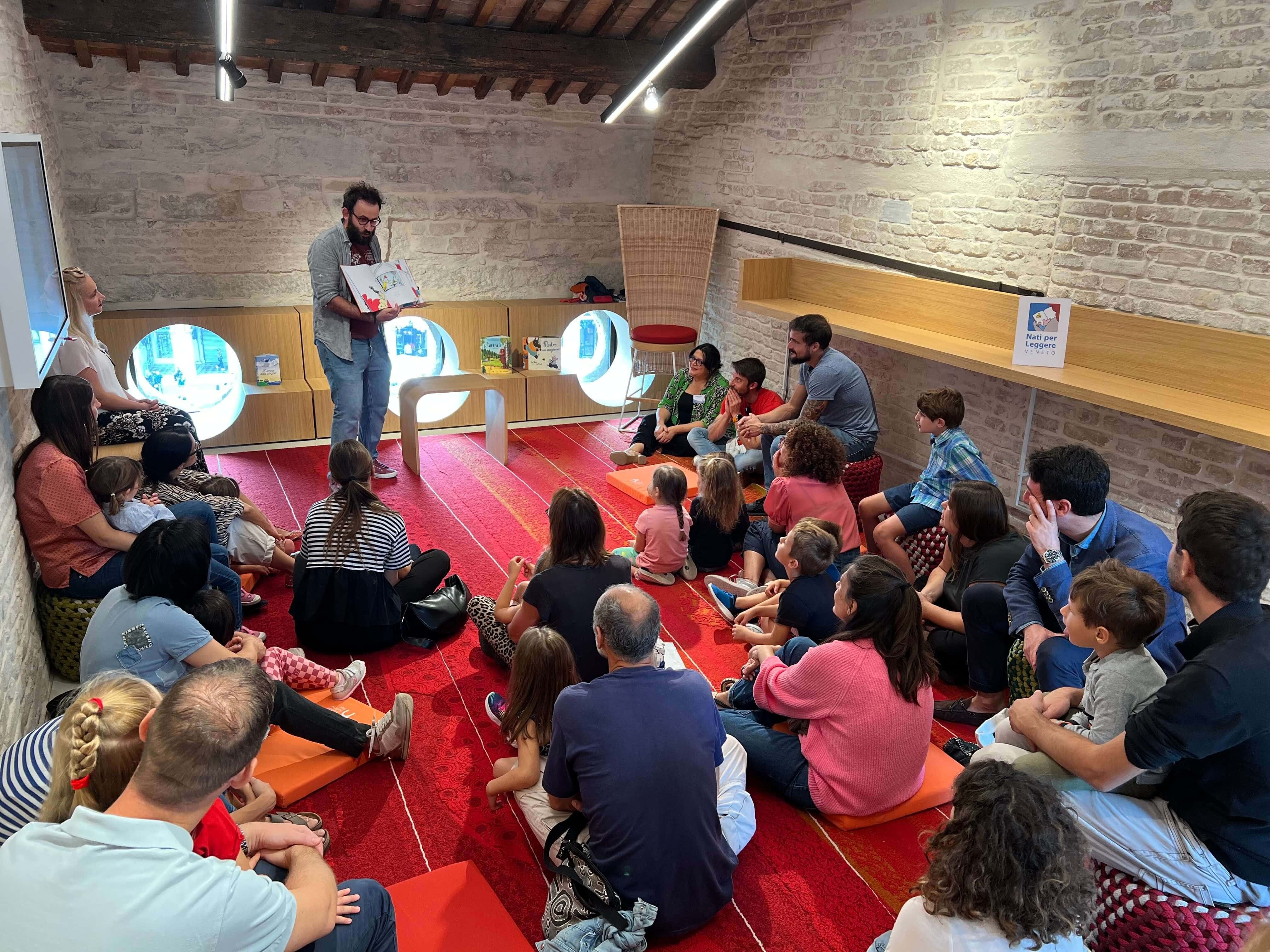.jpeg/lang:en/IMG_8051_(1).jpeg)
Posted
Why reading to children is important?
We talked to a group of volunteers training on reading techniques to understand better why and how to read to children.
.jpeg/lang:en/IMG_8051_(1).jpeg)
Nati per Leggere is an Italian programme that promotes reading to children. The project is aimed at families with preschool children and is co-promoted by one of our Italian partners, Centro per la Salute del Bambino (CSB). The programme is active in more than 2000 Italian municipalities. Librarians, paediatricians, educators, public authorities, and cultural associations promote the local projects.
Nati per Leggere aims to promote reading in the family from birth because reading influences children's intellectual, linguistic, emotional, and relational development, with significant effects throughout their adult lives. The voice of a reading parent creates a solid and secure bond with the child. Through the words of the books, the relationship is intensified, and the children come into contact and atonement thanks to the invisible thread of the stories and the magic of the voice. This initiative provides parents with the tools to consolidate an unbreakable bond with their children.
Nati per Leggere offers workshops to parents and volunteers who will teach others how to read to their children. We met a group of volunteers who were training on reading techniques and asked them why and how we should read to children and why they decided to start this activity.
Serena is a mom of a girl who will soon be six years old, and she explained to us why she decided to train reading, "I have noticed that reading is fundamental for stimulating imagination, creativity, and curiosity in children. It enriches their vocabulary and helps them develop language, memory, attention, learning, and interaction. It helps children express their emotions, and recognise and perceive the world around them. It enhances logical skills and helps develop critical thinking." She has also shared with us her reading ritual: "I read and re-read the book to get to know it in detail. Then, I position myself in front of the mirror and begin with the training of reading aloud, checking how to hold the book in my hand, how to turn the pages, and where to direct my face. I work on the rhythm of the story, modulating the sounds and accents, giving a different voice to each character and adding small, simple movements that the children could also make as they reappear in the story. It is essential to create empathy with the young listeners and convey the emotions of the various protagonists."
Alberto explained how to set up the reading environment: "In my opinion, the environment is important, a bright room during the day or with warm, soft lights in the evening, keeping the child close to us, comfortable sitting on a sofa, possibly in a room with soft colours; let the child touch the book, open it, leaf through it; pour in your heart and soul in what you read."
"I realised that with my daughters, I did amateur reading and chose the stories randomly, not for the subject matter. For this reason, I regret it because I would have liked to have done it more consciously," says Lodovica, one of the readers in training. She advises those who want to do proper reading to explore what texts are available in bookshops and libraries, to avoid stopping at a pretty cover, to read the story first and eventually to look for titles based on the theme they want their child to learn about.
We hope that these tips from Nati per Leggere volunteers have given you a better understanding of why reading to children is essential and at least a few inputs on how to do it better.


